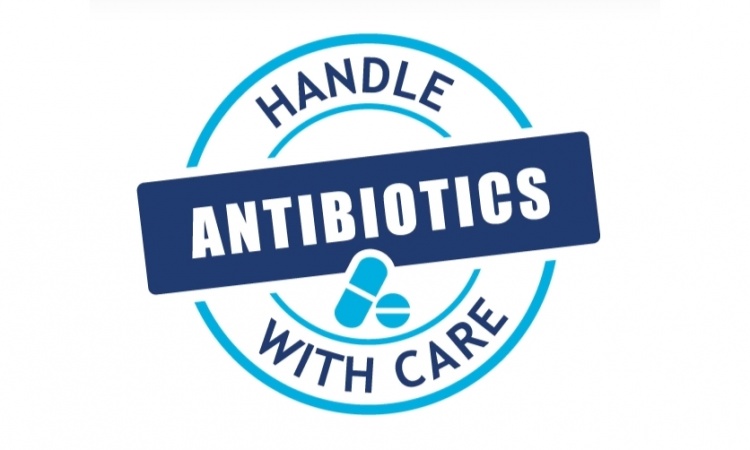Image source: Adobe Stock/BibbidiStudio
News • Health communication on AMR
How to improve public understanding of “antimicrobial resistance”? Rename it
The public is failing to take antimicrobial resistance (AMR) seriously and it could all be down to the scientific terminology used.
A study by Dr Eva Krockow from the University of Leicester, which looked at public health communication shows that the term commonly used to describe bacteria resistant to current medicines or antibiotics (Antimicrobial resistance or AMR) is not taken seriously enough and therefore fails to stick in people’s memories.
An estimated 4.95 million deaths were associated with AMR in 2019 and this global health care threat is predicted to increase, eventually making it impossible to treat even common infections.

Image source: University of Leicester
Dr Krockow is a lecturer and lead of the Health and Wellbeing (with Ageing) Research Group in the School of Psychology and Vision Sciences. Her study, which has been published in Communications Medicine, says that healthcare campaigns must urgently increase public awareness around this important issue but instead are “inconsistent, abstract, and the language used often difficult to pronounce”.
Her study looked at word memorability and risk association for the most frequently used terms to describe AMR. These were: “antimicrobial resistance” and five commonly used variants including “AMR”, “antibiotic resistance”, “bacterial resistance”, “drug-resistant infections” and “superbugs”. In addition, the study added 34 other health risk terms, such as “cancer” and “heart disease”. Some 237 participants from the US and 924 from the UK were tested on memory for and risk they associated with each term on a scale ranging from very safe to harmful or very risky. They were also asked to consider pronounceability and familiarity alongside other linguistic attributes.
Results showed that “AMR” and “antimicrobial resistance” were among the lowest-scoring terms out of the 40 for both risk association and memorability and therefore unsuitable for public health communication. However, the terms “antibiotic resistance” and to a lesser extent “drug-resistant infections” performed better.
Lessons might be learned from recent success stories including the re-naming of the “Wuhan novel coronavirus” into “Covid-19”
Eva Krockow
Dr Krockow said: “It’s imperative that if we’re to protect modern medicine and conserve existing medication for future generations, we reduce antibiotic use internationally. To do so we need effective public health campaigns that encourage behaviour change. Our study highlights the need to rename AMR to a memorable term that’s fit for the wider public and not just those from the medical or scientific communities. The perception of risk is an important measure for a term’s effectiveness because people often think about its severity and their own risk or vulnerability to their health in this case. Therefore, the terminology that’s likely to be most effective is that which alarms the general population about an impending threat.”
Results showed that while participants correctly judged heart disease and cancer to be amongst the largest health threats, they severely overestimated the risks of tropical diseases such as Ebola and Malaria, while underestimating the threat of AMR, which ranked sixth in terms of global deaths incurred and is predicted to overtake cancer as a leading cause of death by 2050.
Recommended article

Article • Bacterial defense mechanism
Antibiotic resistance: a global threat to healthcare
Antimicrobial resistance (AMR) is becoming more prevalent around the world, constituting a serious threat to public health. When bacteria acquire resistance against antibiotics, common medical procedures – for example, in surgery – become impossible due to the high infection risk. Keep reading to find out about AMR research, development of new antibiotics and antibiotic alternatives.
Dr Krockow added: “Statistical comparisons across both studies of the six AMR-related health terms indicated that “drug-resistant infections” was significantly more effective in inducing risk perceptions than all other existing AMR terms. However, the results also showed that “drug-resistant infections” ranked particularly low on memorability, while “antibiotic resistance” was remembered most easily. Given our findings of the limited effectiveness of all existing AMR-related terminology, future research is urgently needed to identify a different name, which is easy to remember and successful in evoking proportionate risk perceptions. Lessons might be learned from recent success stories including the re-naming of the “Wuhan novel coronavirus” into “Covid-19.”
Source: University of Leicester
30.10.2023







